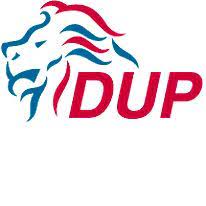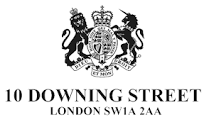PRESS RELEASE : Mayor publishes consultation Budget to build a safer, fairer, greener and more prosperous London [December 2022]
The press release issued by the Mayor of London on 16 December 2022.
- Mayor introduces ‘Climate Budgeting’ across the GLA Group, setting out how TfL, Metropolitan Police Service and London Fire Brigade could achieve Net Zero Carbon by 2030
- GLA Group carbon emissions have more than halved since the Mayor was first elected in 2016
- No decision on council tax until the New Year as the government has yet to publish the local government settlement
- Mayor fears a lack of government funding will force him to increase council tax
The Mayor of London, Sadiq Khan, has today reiterated his warning that Londoners may face increased council tax bills as the government has failed to give him the resources needed for Transport for London (TfL), the Metropolitan Police Service and the London Fire Brigade (LFB).
The Mayor has today published a consultation document on budget proposals for the draft Greater London Authority (GLA) Group budget that focuses on building a safer, fairer, greener and more prosperous city for all Londoners.
For the first time, the Mayor has introduced the concept of ‘Climate Budgeting’ across the GLA Group. This sets out how organisations, including TfL, the Metropolitan Police Service and the LFB could achieve Net Zero Carbon by 2030 across their operations.
The climate emergency is today’s biggest global threat and Sadiq has already set out some of the most ambitious plans to tackle climate change and air pollution of any major city, and has overseen a 53 per cent reduction in carbon emissions from the GLA Group since coming into office in 2016.
London’s new City Hall in the Royal Docks has received the highest possible rating from the world’s leading experts in sustainable buildings, marking it out as one of the greenest city Hall for a global city. City Hall has received the highest possible rating for sustainability and is projected to use around 50 per cent less energy compared to other buildings of the same size.
No decision has been made on council tax levels for 2023-24. This will only be made once the Mayor has fully considered the implications of the government’s local government and police finance settlements. The provisional local government settlement – which should have be published around 6 December – is still not available, and without this the Mayor cannot assess the likely income from business rates next year. Therefore, the consultation budget retains the assumption from July’s budget guidance that a lack of government funding for London’s key public services means council tax may need to raise by an additional £27.89 a year for an ‘average’ Band D household – the equivalent of £2.32 a month, below the current rate of inflation. This should be regarded as a working figure subject to change, with a decision to be made in the New Year once sufficient information is available.
The Government’s removal of TfL’s operating grant in 2015 made London’s transport network over-dependent on fares income, which created a financial emergency when the pandemic hit. Sadiq has managed to navigate TfL through a financial crisis caused by the pandemic whilst protecting vital services for Londoners. By standing up for London, he has avoided TfL having to implement huge cuts to vital transport services across our city. However, the Government has still left TfL with a significant funding gap and has insisted that the Mayor raises over £500m a year as a condition of emergency funding deals – with Ministers explicitly proposing that he raise council tax to do so. This means Sadiq has been left with no alternative but to plan to increase council tax by £20 next year, as approved by the Government, to ensure London can continue to have a world-class transport network
Bearing down on violent crime, including violence against women and girls, and making London safer remains the Mayor’s number one priority. Overall, crime continues to fall in London, bucking the national trend. Over the last six years, Sadiq has invested record amounts from City Hall to support the police, which has enabled him to put 1,300 more officers on the streets, expand neighbourhood policing and elevate police officer numbers to the highest level in history. However, the Mayor and the Met Commissioner agree that London needs at least 1,440 more officers than the Government is currently planning to fund. In addition, the Home Office is still refusing to award London the extra £159m National and International Capital Cities grant that its own independent review said London is due.
Due to this lack of national funding, the consultation budget retains the assumption from July’s budget guidance that there will be a 1.99 per cent increase to his policing precept – the equivalent of £5.53 a year. The assumption of a 1.99 per cent increase for the LFB is also retained to ensure it can continue to quickly respond to major fires and make the changes needed after the Grenfell Tower Inquiry – this is equivalent to £2.36 a year. Both these figures are below the council tax caps the government has recently confirmed for 2023-24, of £15 on Band D for policing and 3 per cent for non-policing (excluding Transport for London as described above). The Mayor will review these proposals when further information is available from the government on likely business rates income next year.
Overall, the Mayor has ensured that the 2023-24 GLA Group consultation budget is focused on his core priorities and the issues that matter most to Londoners. This includes:
- Keeping London safe, by being tough on crime and the causes of crime and ensuring the Met and London Fire Brigade both have the resources they need to reform and serve Londoners effectively.
- Taking the boldest action of any city in the world to tackle air pollution and the climate crisis.
- Continuing to build a record number of council homes and homes more Londoners can afford.
- Maintaining a world-class transport network in London.
- Supporting Londoners and businesses most in need through the cost-of-living crisis.
- Continuing to offer free training to anyone who is unemployed or in low-paid work and ensuring young Londoners have the opportunities to thrive including providing a mentor to all young Londoners in need.
The ‘Climate Budget’ sets out funded actions that the GLA Group will take and the unfunded projects and actions that are needed to meet their 2030 Net Zero target. By 2030, this will require switching Metropolitan Police, LFB and TfL fleets to run on electricity, the electrification of heating in police and fire stations and TfL’s buildings, and the installation of more electric vehicle charging infrastructure and solar panels across the GLA estate.
The Mayor is clear that the action and cost of transitioning to Net Zero in London cannot be met by the GLA Group alone and will not be at the expense of service delivery, such as the redirection of resources from frontline policing. It will require concerted effort and funding from others, including the government, London boroughs, other public sector organisations and the private sector. However, ‘Climate Budgeting’ will allow organisations within the GLA Group to start planning now so that they can access funding and finance to hit the 2030 target.
The Mayor of London, Sadiq Khan, said: “I’m more determined than ever that we continue to build a safer, fairer, greener and more prosperous London for everyone – and this is what’s at the heart of this consultation budget.
“Our city is facing an extremely challenging time due to the state of the national economy and the cost-of-living crisis, which is hitting many Londoners hard. The last thing I want to do is raise council tax, but I want to be honest with Londoners that the government is leaving us with no viable option if we are to maintain the transport services Londoners rely on and to ensure our police officers and firefighters have the resources they need. I believe council tax is a regressive tax, but there are no other feasible options available to me in order to properly fund London’s vital public services.
“Despite these difficult times, I remain optimistic for our city because we have shown time again over the last six years how we can still take huge strides forward in London, even in the most difficult of circumstances. The additional money we plan to invest will allow us to continue delivering on the issues that matter most to Londoners – reducing crime, building more affordable homes, protecting and improving our world-class transport network, supporting people and businesses through the cost of living crisis, and taking the boldest action of any city in the world to tackle air pollution and the climate crisis.
“We have already delivered a 53 per cent reduction in carbon emissions within the Greater London Authority Group, and we are now introducing for the first time the concept of ‘Climate Budgeting’, which will help TfL, the Met Police and the London Fire Brigade identify what is needed to achieve net-zero carbon by 2030. The climate crisis is the biggest threat we face, and this budget will ensure London remains at the forefront of the fight.”
Mark Watts, Executive Director C40 Cities, said: “It’s fantastic that London is introducing climate budgeting as part of the GLA’s draft budget. Solving the climate crisis requires change across our entire political, economic and social systems. In order to see rapid, systemic transformation we need innovative practices like climate budgeting that mainstream climate targets into every key decision-making process. A total of 12 cities are currently part of the C40 climate budgeting programme, but to deliver the climate action we need today, climate budgeting will need to become standard in every city.”
Governing Mayor of the City of Oslo, Raymond Johansen, said: “I welcome the announcement of London’s first climate budget and applaud Mayor Khan’s continued commitment to climate action. C40’s climate budget pilot has allowed Oslo to share its learnings from the city’s climate budget work and demonstrate that mayors have the means to go from goals to action and place climate policies at the heart of government. I am honoured that London has taken this momentous step and we are eager to learn from the city’s experience and continue to strive for more ambitious climate action”.



